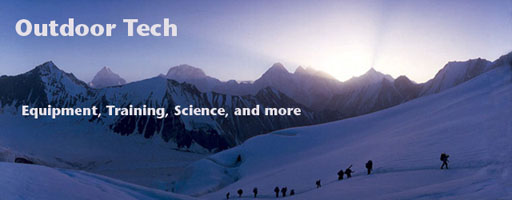 The plague of many a runner, cyclist, climber, boater, and just about any other outdoor athlete, muscle cramps suck. But despite all the suffering, the cause of cramps remains poorly understood. Much of the early research, which was largely funded by Gatorade, has been debunked. Yet this weak science was the basis for a massive marketing campaign that resulted in myths that persist to this day.
The plague of many a runner, cyclist, climber, boater, and just about any other outdoor athlete, muscle cramps suck. But despite all the suffering, the cause of cramps remains poorly understood. Much of the early research, which was largely funded by Gatorade, has been debunked. Yet this weak science was the basis for a massive marketing campaign that resulted in myths that persist to this day.
It's quite likely that many of you believe that cramps are caused by dehydration. Or perhaps you've heard that they result from a shortage of electrolytes, specifically potassium. Maybe it's a lack of minerals (zinc and magnesium). Not enough stretching and massage is another theory.
Alas, all of these have been ruled out as primary causes by the limited independent research that we do have. That's right folks: None of those expensive sport drinks and electrolyte replacement potions will prevent cramps.
Perhaps the most pervasive myth is that if your muscles cramp you weren't drinking enough (insert bottled brand of over-priced salty water). But as Ross at the Science of Sport blog points out, if dehydration and electrolyte depletion were the cause of cramps, more than one or two muscles would seize up.
In their excellent five-part series on cramps, Ross and Jonathan explain that when we sweat from heavy exercise the concentration of electrolytes in the blood actually increases. In part 4, they present examples of what happens to an athlete under different conditions of exercise and hydration. The short story is that low levels of electrolytes are the result of drinking too much water and there is no need for salt tablets or any similar product as long as you drink when you are thirsty.
As an article in the New York Times sums all this up, the leading working theory for the cause of cramps is muscle fatigue combined with an imbalance of the nerve signals. These faulty signals can result from numerous causes including too little vitamin D (needed to control excess calcium, see my post on fatigue), inadequate carbohydrates (which you can get without fancy energy bars and drinks), and a host of other factors including genetics, age, menstrual cycles, and even psychology.
The bottom line is that the sport scientists know what doesn't work, and that includes bananas (Super Bowl notwithstanding), but they don't have clear answers yet on how to prevent cramps. The best advice is build up to an event with proper training (don't run a marathon if you've only been doing 10 Ks), stretch regularly especially if you have muscles that tend to cramp (helps relax the muscle cells), and ensure adequate carbs. Of course, if you like spending money on placebos, feel free to support your favorite snake oil purveyor too.

No comments:
Post a Comment